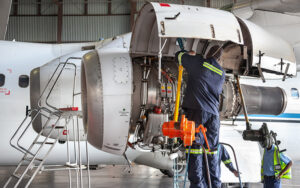As we usher in 2024, a horizon of new beginnings and enhanced choices unfolds before us, especially in the realm of engineering. This sector not only shapes our future but also offers notable financial incentives. With a plethora of specialities to choose from, each engineering discipline presents its unique salary prospects and opportunities for growth. Now is the opportune time to align your professional aspirations with your personal interests and preferences, with that, here’s a look at the top 10 engineering careers of 2024.
The top 10 engineering career specialisations
Whilst remuneration isn’t the sole criterion for an ideal position, its significance cannot be understated in today’s economic climate, particularly given the escalating cost of living. Striking a balance between financial rewards and personal satisfaction is essential, ensuring your career not only meets your monetary requirements but also resonates with your zeal for the profession.
It’s vital to acknowledge that career landscapes and job prospects vary significantly across different nations. Each region has its own demands, industry trends, and economic conditions, all of which profoundly influence career paths and corresponding salaries. Thus, a profession highly valued in one country might not enjoy the same status elsewhere.
Aspiring professionals should conduct thorough research into the job market dynamics, demand, and salary structures within their respective countries. This approach offers a realistic grasp of the professional arena, fostering informed decisions and strategic career planning tailored to each region’s specificities.
Environmental engineer
Environmental engineers blend engineering and environmental science principles to devise solutions for ecological challenges. These often include pollution control, waste management, resource usage, and sustainability. Their objective is to harmonise human activities with environmental protection through projects focusing on water and air quality, waste treatment, environmental impact assessments, and renewable energy development.
Biomedical engineer
Biomedical engineers merge engineering with biological sciences to enhance healthcare and medical practices. Their work spans medical device design, diagnostic equipment development, artificial organ creation, and healthcare system improvements. They serve as a conduit between medicine and engineering, driving innovations in medical technology for improved patient care.
Systems engineer
Systems engineers are responsible for designing and managing complex systems, integrating various components to ensure seamless functionality. Their work, transcending disciplines, involves creating solutions for diverse projects, from aerospace to IT and large-scale infrastructure, with a focus on optimising system performance and functionality.

Electrical engineer
Electrical engineers specialise in electricity-related systems and equipment. Their work covers power generation, electronic circuits, and communication systems, playing a pivotal role in electronics, telecommunications, energy, and manufacturing sectors.
Chemical engineer
Chemical engineers apply chemistry, physics, mathematics, and engineering principles in energy and material transformation. They are pivotal in manufacturing, pharmaceuticals, and environmental sectors, ensuring safe and eco-friendly production processes.
Big data engineer
Big Data Engineers manage large-scale data processing systems, crucial for organisations to extract insights and make informed decisions. They are central to developing data pipelines, integrating data sources, and optimising data infrastructure.
Nuclear engineer
Nuclear engineers apply nuclear physics and engineering in areas like power generation, medical applications, and nuclear research. They are instrumental in the safe and efficient use of nuclear energy, addressing safety and environmental concerns.

Aerospace engineer
Aerospace engineers design, develop, and maintain aircraft and spacecraft. Their work spans designing aviation and space vehicles, propulsion systems, and ensuring aerospace vehicle safety, contributing significantly to aviation and space exploration.
Computer hardware engineer
Computer hardware engineers focus on designing and developing computer systems and components. Collaborating with software developers, they ensure hardware-software compatibility and are key to developing faster, more efficient, and reliable computer systems.
Petroleum engineer
Petroleum engineers specialise in oil and gas exploration and production. They optimise drilling processes, develop oil recovery strategies, and implement technologies to reduce environmental impact in petroleum resource extraction.
So there we have it, the top 10 engineering careers of 2024. Whilst this is certainly worth considering, remember when navigating your engineering career to consider the myriad opportunities each field offers, and find the role that aligns perfectly with your passion and expertise.




